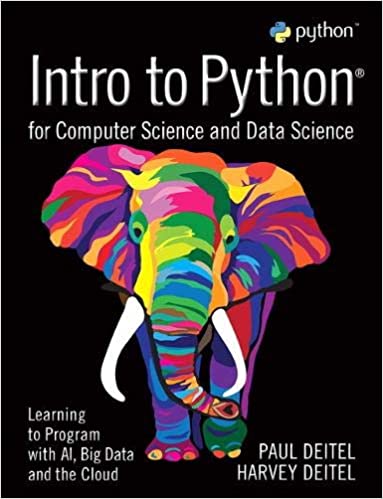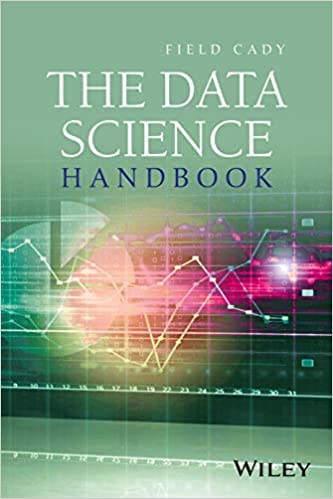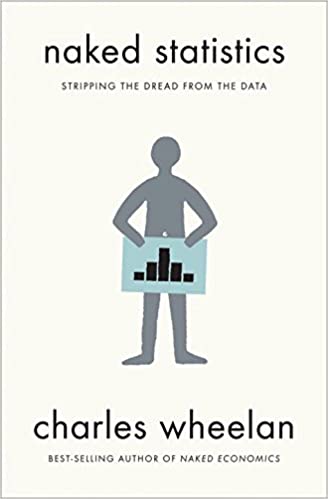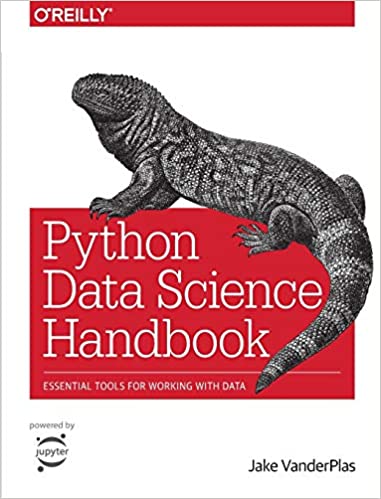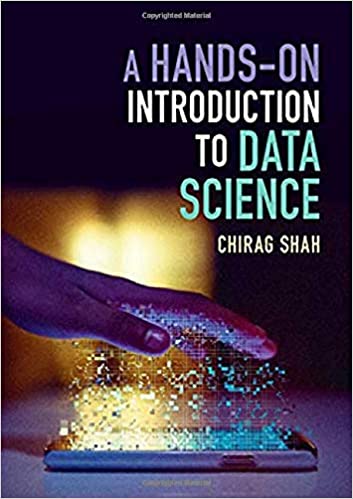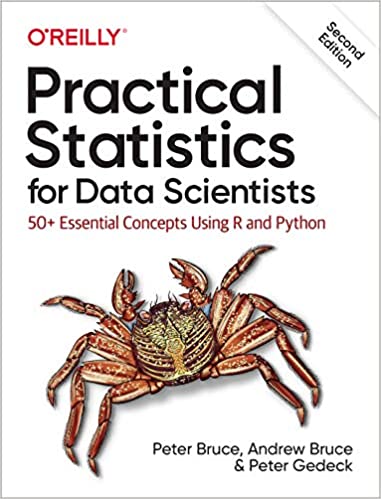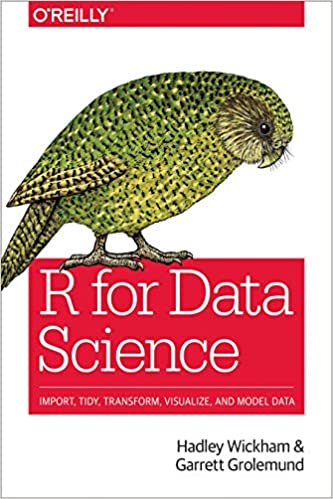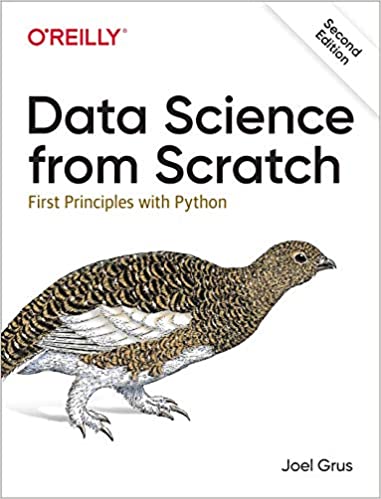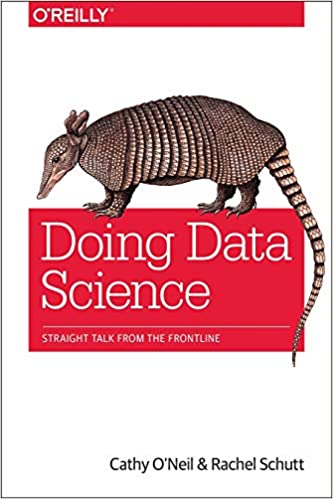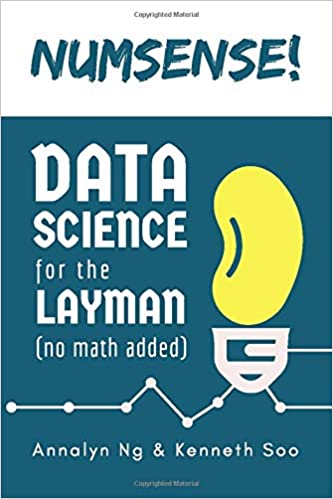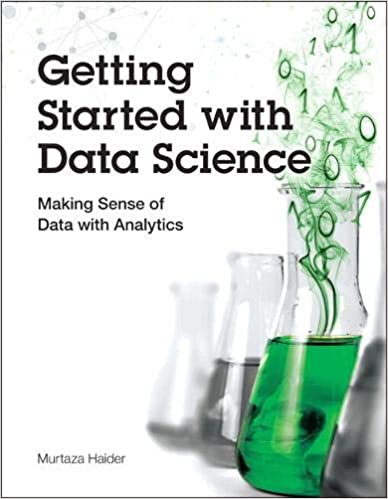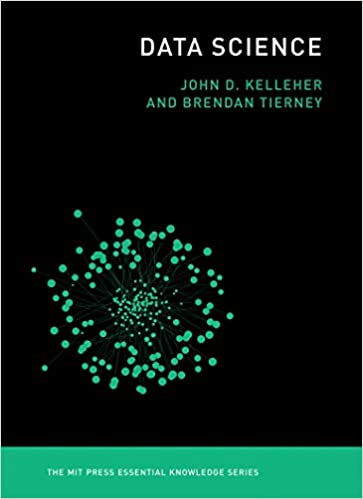According to the Bureau of Labor Statistics, the average salary for a data scientist is $100,560 per year. And as the demand grows, so will that salary.
So there’s no better time to start learning about data science.
Today we’re looking at some of the best data science books for beginners that we could find.
This post contains affiliate links. I may receive compensation if you buy something. Read my disclosure for more details.
TLDR: Best Data Science Books for Beginners
🔥 Best Overall 🔥
The Data Science Handbook
💥 Best for Newbies 💥
A Hands-On Introduction to Data Science
💸 Best Value 💸
Data Science from Scratch
Best Data Science Books
1. Intro to Python for Computer Science and Data Science
🚨 Ideal for: Beginners
💥 Major topics: computer science, AI, Big Data, the cloud
Intro to Python for Computer Science and Data Science by Paul and Harvey Deitel is one of the best data science books for beginners who are also interested in learning computer science.
Both are taught from a Python programming perspective.
Using real-world datasets and artificial intelligence technologies, you’ll work on projects related to business, government and education.
You’ll also find plenty of Jupyter Notebook supplements.
There are hundreds of examples, exercises and projects you’ll work on throughout Intro to Python. You’ll also find implementation case studies.
🍷 Pairs well with the course DataCamp: Introduction to Data Science in Python.
2. The Data Science Handbook
🚨 Ideal for: Beginners
💥 Major topics: computer science, software engineering, machine learning algorithms
The Data Science Handbook by Field Cady covers programming, business skills and analytics of data science. This overview provides a crash course in data science skills.
Similar to Intro to Python, you’ll learn plenty of concepts in computer science. You’ll also spend time on software engineering.
In addition, you’ll learn some key machine learning algorithms as they apply to data science.
But for the bulk of The Data Science Handbook, you’ll focus on data science fundamentals such as:
- visualization tools
- classical statistics
- communication of technical results
And beyond.
You’ll also learn the core technologies of Big Data. Then you’ll look at actual case studies from the data science industry.
All concepts in The Data Science Handbook are explained within the scope of real-world data problems. And all problems are presented in Python.
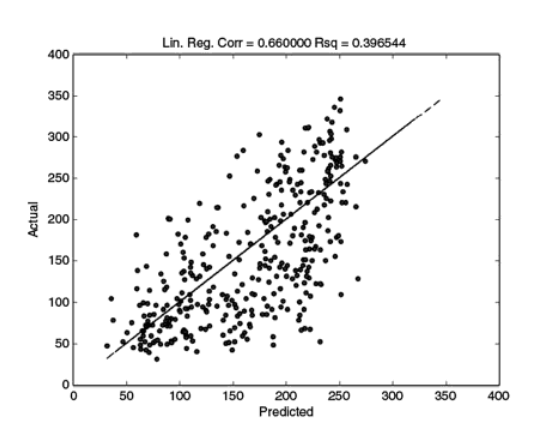
3. Naked Statistics: Stripping the Dread from the Data
🚨 Ideal for: beginners
💥 Major topics: statistics
If you want to be a data scientist, you have learn statistics. Naked Statistics by Charles Wheelan is one of the best data science books for beginners.
Touting itself as similar to a Statistics 101 course, you’ll strip down what drives statistical analysis such as:
- inference
- correlation
- regression analysis
And beyond.
In addition to learning bare bones concepts in statistics, you’ll learn how data can be misrepresented, manipulated and exploited.
💡 Did you know? Misrepresented data is considered deceptive communication. But because analysts interpret data differently, the lines can be blurry.
With a name like Naked Statistics, you can expect the contents to be engaging and stimulating. So you’ll look at real-world case studies related to Schlitz beer 🍺 and the International Sausage Festival 🌭.
Instead of boring statistics, you’ll find engaging and fun examples to keep learning interesting.
This is a fantastic book on what would at first glance seem to be a dull topic, but Whelan handles it so well you’ll turn the pages like you are reading your favorite novel.
– Larry Krigbaum, Customer
🔥 Geena’s Hot Take
You’ve gotta know statistics if you’re going to be a data scientist.
And what better way than something that’s not dry and maybe a little spicy?
Naked Statistics is probably the best way to learn statistics if you struggle with mathematics.
The text is more approachable and more relatable. And that typically makes it easier to learn.
4. Python Data Science Handbook
🚨 Ideal for: Intermediate students
💥 Major topics: Python tools like IPython, Numpy and pandas
Python Data Science Handbook by Jake VanderPlas is unique in that, instead of learning one or two tools of the Python data science stack, you’ll learn them all:
And beyond.
You’ll learn how to navigate daily issues such as cleaning data, visualizing data, and building statistical machine learning models.
The Python Data Science Handbook is ideal for students who are looking to learn about Python data science tools.
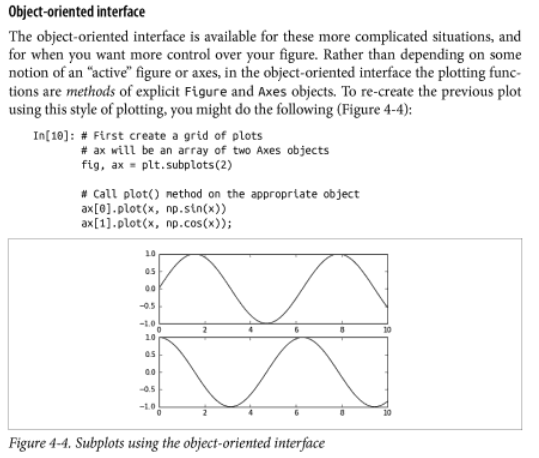
🍷 Pairs well with Educative.io: Grokking Data Science.
5. A Hands-On Introduction to Data Science
🚨 Ideal for: Beginners
💥 Major topics: MySQL, Python machine learning,
A Hands-On Introduction to Data Science by Chirag Shah introduces data science in a practical way using a hands-on approach. It’s one of the best data science books for beginners because it assumes no prior knowledge.
Unlike other data science books, you’ll learn about concepts without using the technology. So you can understand data science without a technical background.
A Hands-On Introduction to Data Science is separated into 4 parts. First you’ll get a general overview of data science concepts.
Next, you’ll learn about different data science tools like MySQL and Python. There’s also extensive coverage on machine learning.
💡 Machine learning means computers can access their own data and learn from it. Kinda cool… and spooky. 👻
Finally, you’ll examine applications, evaluations and methods of data science.
You’ll use Python and R programming throughout A Hands-On Introduction to Data Science. And you’ll work with real-world examples that range from small to big data.
There’s also an online companion section to the book where you’ll look at datasets, slides and solutions.
6. Practical Statistics for Data Scientists
🚨 Ideal for: Intermediate students
💥 Major topics: statistics, exploratory data analysis, classification techniques
Practical Statistics for Data Scientists by Peter Bruce, et al. is for data scientists who don’t have any formal statistical training.
Using practical examples in Python programming, you’ll learn how to apply statistical methods to data science.
In addition, you’ll learn about exploratory data analysis and its relation to data science. Then you’ll explore random sampling and how it can reduce bias.
💡 Bias in data science refers to an error in the data.
You’ll also learn how to use regression to estimate outcomes and spot anomalies.
Finally, you’ll examine key classification techniques, statistical machine learning methods, and unsupervised learning methods.
You should be somewhat familiar with Python or R programming and have a minimal understanding of statistics before reading Practical Statistics.
Amazing book! Just what I needed to learn practical statistics for data science… The codes in R and Python make it easy to compare the applicable codes in both languages.
– AirborneTrader, Customer
7. R for Data Science
🚨 Ideal for: Beginners
💥 Major topics: R, RStudio, tidyverse
R for Data Science by Hadley Wickham and Garrett Grolemund teaches you how to use R programming to turn raw data into insights. In addition to R, you’ll be introduced to RStudio and the tidyverse, a collection of R packages.
The exercises in R for Data Science are designed to make you a data wizard. For example, you’ll learn how to wrangle your data by transforming datasets.
💡 Also known as data munging, data wrangling is the process of converting raw data into another format.
You’ll also explore your data by examining, generating a hypothesis and testing it. Finally, you’ll learn how to model and communicate your data.
Every section of the book contains a series of exercises.
R for Data Science is one of the best data science books for beginners with no prior programming experience.
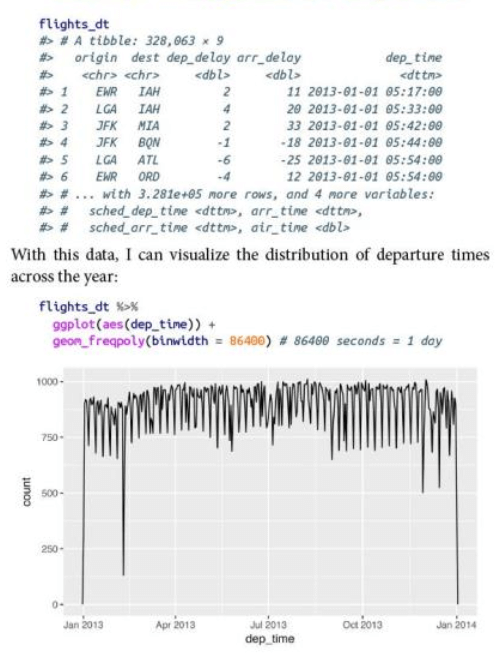
8. Data Science from Scratch
🚨 Ideal for: Beginners
💥 Major topics: data science libraries, frameworks, toolkits
Data Science from Scratch by Joel Grus uses Python 3.6 to highlight the tools needed to master data science. This includes data science libraries, frameworks and toolkits.
First, you’ll get a crash course in Python programming. Then, you’ll learn the basics of statistics, algebra and probability.
Next, you’ll learn how to explore, clean and manipulate data. You’ll also learn about the fundamentals of machine learning.
Then you’ll learn to implement models like:
- k-nearest neighbors
- Naive Bayes
- regression
- decision trees
- neural networks
And beyond.
Finally, you’ll learn about recommender systems, natural language processing, and more.
You should have an understanding of programming and mathematics before reading Data Science from Scratch.
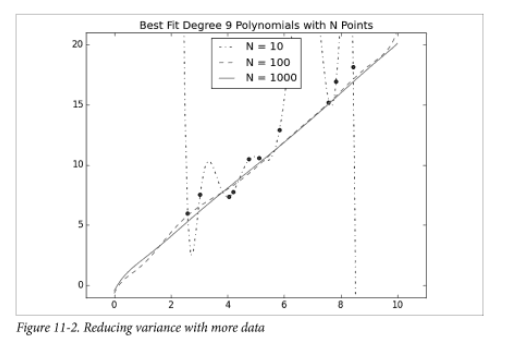
🍷 Pairs well with Zero to Mastery: Complete Machine Learning and Data Science.
9. Doing Data Science: Straight Talk from the Frontline
🚨 Ideal for: Beginners
💥 Major topics: data visualization, data engineering, logistic regression
Doing Data Science by Cathy O’Neil and Rachel Schutt is one of the best data science books for beginners.
Based on Columbia University’s Introduction to Data Science class, the material is presented by data scientists of FAANG companies.
Each chapter contains case studies, algorithms, methods and models.
Some of what you’ll learn includes:
- statistical inference
- data journalism
- logistic regression
- data visualization
- data engineering
And much more.
💡 Data journalism is a way of reporting that uses statistics to highlight relevant data and provide deeper insights into a news story.
Doing Data Science is for readers that have programming experience and are familiar with linear algebra, probability, and statistics.
10. Numsense! Data Science for the Layman: No Math Added
🚨 Ideal for: Beginners
💥 Major topics: anomaly detection, regression analysis, social network analysis
Numsense! Data Science for the Layman by Annalyn Ng and Kenneth Soo teaches data science with a no-math approach. It’s meant to be a gentle introduction to data science and algorithms.
Packed with visuals, you’ll learn about:
- A/B testing
- anomaly detection
- decision trees and random forests
- regression analysis
- social network analysis
And much more.
For each algorithm presented, there’s an entire chapter dedicated to explaining how it works. You’ll also find examples of real-world applications.
Numsense! is one of the best data science books for beginners who aren’t yet proficient in mathematics.
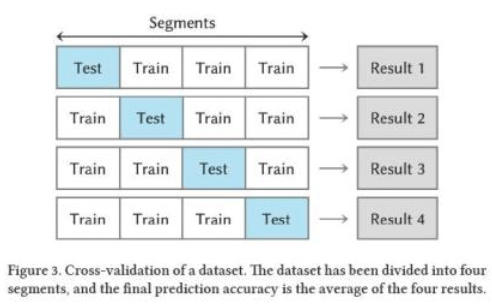
11. Getting Started with Data Science
🚨 Ideal for: Beginners
💥 Major topics: data analytics
Getting Started with Data Science by Murtaza Haider takes a different approach to teaching. Instead of blasting you with math and programming, you’ll learn largely through stories.
Each chapter is built around actual research challenges. And you’ll master data science by answering interesting questions such as:
- Do higher cigarette prices deter people from smoking? 🚬
- What more determines the price of houses: the number of bedrooms or lot size? 🏠
- How do teenagers and older people use social media differently? 👵
For each problem, you’ll:
- define your question
- explore similar challenges
- select your data
- generate your statistics
- organize your report
And tell your story.
Getting Started with Data Science is one of the best data science books for beginners who learn best with storytelling and engaging text.
12. Data Science (The MIT Press Essential Knowledge series)
🚨 Ideal for: Beginners
💥 Major topics: data infrastructure, integrating data, machine learning
Data Science (The MIT Press Essential Knowledge series) by John Kelleher and Brendan Tierney is a concise introduction to data science. You’ll learn about the evolution of data science, its relation to machine learning, ethical challenges, and beyond.
But first, you’ll gain insight into the history of data science. Then you’ll learn about data science projects stages. This includes:
- data infrastructure
- integrating data
- machine learning
And beyond.
You’ll also go over ethical and legal issues within data science.
🍷Pairs well with Codecademy Pro: Learn R.
Best Data Science Books for Beginners: Conclusion
We chose the best data science books for beginners based on the following:
Best Overall
The Data Science Handbook
Best for Newbies
A Hands-On Introduction to Data Science
Best Value
Data Science from Scratch
So whether you’re looking for the best overall, best for newbies, or best value, we think there’s a book for every aspiring data scientist.
Up Next:
- Top 11 Python Books for Data Science This Year [Learn Data Science using Python]
- 9 Best Data Science Courses for Beginners [+4 Data Science Learning Paths]
- Best Data Science Interview Course [Educative vs DataCamp]
- 4 Best Data Science Courses This Year [Educative, DataCamp, Zero to Mastery, Codecademy]
- DATACAMP REVIEW [Is It Worth Your Time and Money?]
What are the best data science books for beginners?
We chose three of the best data science books for beginners. Overall, we think The Data Science Handbook is the way to go. For newbies, we think A Hands-On Introduction to Data Science is the best book. And for best value, we think Data Science from Scratch is a solid choice.
Is the book Doing Data Science worth it?
Doing Data Science by Cathy O’Neil and Rachel Schutt is one of the best data science books for beginners. Based on Columbia University’s Introduction to Data Science class, the book is broken down into chapter-long lectures. They’re presented by data scientists of FAANG companies. Each chapter contains case studies, algorithms, methods and models. Some of what you’ll learn includes statistical inference, logistic regression, data visualization, social networks and data journalism, and much more. Doing Data Science is for readers that have programming experience and are familiar with linear algebra, probability, and statistics.
Is the book The Data Science Handbook worth it?
Yes, we think The Data Science Handbook by Field Cady is worth it. It’s a textbook covering programming, business skills and analytics of data science. This overview provides a crash course in data science the skills involved. Similar to Intro to Python, there’s extensive coverage of computer science. You’ll also spend time on software engineering. In addition, you’ll learn some key machine learning algorithms as they apply to data science. But for the bulk of The Data Science Handbook, you’ll focus on data science fundamentals such as visualization tools, classical statistics, communication of technical results and beyond. You’ll also learn the core technologies of Big Data. In addition, you’ll look at actual case studies from the data science industry. All concepts in The Data Science Handbook are explained within the scope of real-world data problems. All problems are presented in the Python programming language.
![12 best data science books for beginners this year [learn data science asap]](https://realtoughcandy.com/wp-content/uploads/2021/04/cover-best-data-science-books-for-beginners-1024x576.jpg)
